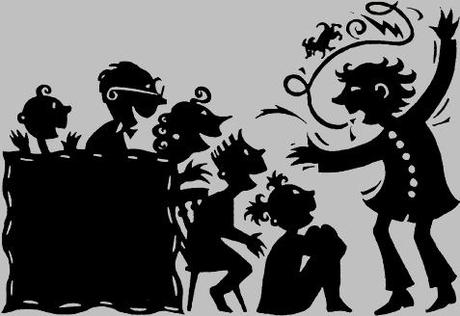It’s no secret that humans like to tell stories and the most satisfying stories have a beginning, middle, and end — all narrated in a way which gives rise to the illusion that one thing caused another. But a temporal unfolding of events is not causal. Storytellers choose which events to include in the unfolding, and those events may or may not be causally connected. They usually aren’t, even if we delude ourselves otherwise.
Humans also have a tendency to render and reduce complex successions or coincidences of events as a single “thing.” We give it a name and reify the succession-coincidence as an object which can then be subjected to analysis. The recent “financial crisis” is a perfect example. Whatever the crisis is or was, it is not a singular object that can be dissected with a simple story. Despite this fact, we have no shortage of stories which purport to explain not only what it is but also what caused it.
In “Our Gift for Good Stories Blinds Us to the Truth,” behavioral scientist Reid Hastie explains that our brain’s inbuilt preference for narrative obscures the complex, multi-causal truths of the matter:
Compared with all other animals, we are endowed with remarkable capacities for causal discovery and causal reasoning, the skills that underlie the narrative habit. The divide between human and our nearest primate cousins in causal cognition capacities is as dramatic as our advantage in language use.
The trouble is that narrative thinking often supplants scientific thinking in domains of analysis and policy where we should look for more than a good story. Narrative thinking is easier for the thinker than its less natural analytic alternatives, and it is often persuasive when used to make arguments to others.
For one thing, narratives give us a false sense of understanding and control, when they are really mere re-descriptions of selected sub-parts of the events to which they refer. Once we have a good narrative summary, we have the illusion that we could have intervened and controlled outcomes, or could have predicted what in hindsight seems to be an obvious outcome. But, unlike valid causal explanations that support informative forecasts and suggest ways to change events further down the causal stream, narratives lack these basic properties of true causal explanations.
Narratives also tend to be dominated by a few major actors, and faux explanatory power is derived from simplistic interpretations of those actors’ characters and motives. And the universal human illusion that consciously accessible thoughts are in the driver’s seat and controlling our own actions means that the salient actors in a narrative we want to understand are attributed information and incentives to a greater degree than is warranted.
So the next time you hear a good story about why the financial recession, or any other economically significant event, was caused by a single collection of bad actors — or how a simple linear narrative “explains” an important event — remember this: Just as we are wired to like a diet rich in fats and sugars, we have an appetite for simple, coherent narratives. Neither habit is good for our long-term health.
This is good advice that should be applied across domains, including the evolutionary and historical study of religions. The next time you hear a simple, linear, and satisfying story about some outcome or event, interrogate it.


